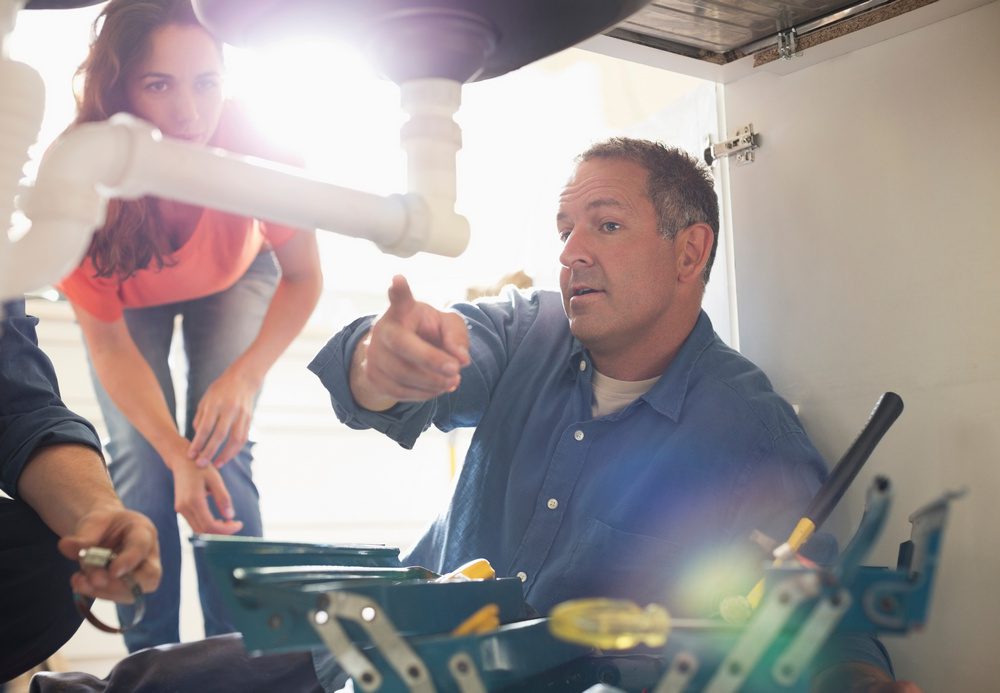Regarding ensuring a cozy home, plumbing complications can often be a root of stress for homeowners. Whether it’s a a leaky faucet, a persistent blockage, or possibly a pipe that has burst, knowing how to address these common issues can save you hours, funds, and a great deal of hassle. In this article, we’ll discuss the usual inquiries about plumbing, offering knowledgeable replies to help you overcome the difficulties that can arise in your home.
From knowing when to call a specialist to understanding preventive measures that can keep your plumbing system running smoothly, we’ve got you covered. We’ll give key advice on topics like preparing your plumbing for the winter months, the positive aspects of engaging a qualified plumber, and even information about the latest plumbing technology. Join us as we demystify plumbing issues and equip you with the knowledge to handle them effectively.
Common Pipe Issues
One of the most common plumbing problems homeowners face is faucets that leak. https://firstclassplumberswexford.com/ can be annoying, not to mention costly over time as water bills increase. The cause is often a worn-out washer or O-ring, which is an easy fix for most DIY fans. Simply stopping the water supply, dismantling the faucet, and putting in the broken parts can return proper function.
Another common problem is blocked pipes. Kitchen sinks, bathroom sinks, and shower drains are particularly prone to blockages due to fat, hair, and soap buildup. Regular maintenance, such as utilizing drain strainers and steering clear of pouring grease down the sink, can assist in avoiding these clogs. When issues happen, employing a plunger or a mixture of baking soda and vinegar can typically remove minor obstructions without the need for aggressive chemicals.
To wrap up, homeowners often deal with constantly running toilets, which can consume a significant amount of water. This issue typically stems from a faulty flapper valve or a defective fill valve. To address this, start by inspecting the chain and flapper for proper alignment and replacing any damaged elements. This simple diagnosis can lead to a more efficient toilet and lower unnecessary water usage.
Emergency Pipe Advice
When confronted with a plumbing crisis, the initial step is to know how to shut off your supply of water. Locate the main water turn-off valve in your home and make sure all household members are aware of its position. This can help you swiftly stop the rush of water in case of a burst pipe or severe leak, reducing damage to your property. Familiarize yourself with the different shut-off valves for devices like the water heater, dishwasher, and washing machine, as these can also help control particular leaks.
In furthermore to understanding how to turn off water, it's important to have a basic urgent toolkit. Necessities include a spanner, grippers, a bucket, and rags to control small leaks or clogs. Having a plumbing tool on hand can be particularly useful for clearing blocked toilets. Even if you consider sure in your DIY skills, don't hesitate to contact a licensed plumber for major issues or if you’re unsure about how to proceed. Prompt action can prevent escalating problems down the line.
Understanding potential indicators of plumbing emergencies can save you time and money. Watch for unexpected increases in your water bill, damp spots on walls or ceilings, or the sound of flowing water when no fixtures are in use. Recognizing these signs promptly allows for swift intervention before issues worsen. If you’re experiencing low water pressure or have observed your fixtures are acting unusually, it’s best to contact a licensed expert to assess the situation promptly.
Pipe Care & Upgrades

Caring for your plumbing system is essential for ensuring its longevity and efficiency. Regular checks can help identify potential issues before they grow into expensive repairs. Basic tasks like checking pipes for leaks, cleaning faucet aerators, and checking the strainers in sink drains can go a long way. Homeowners should also think about arranging expert inspections at least a minimum of once a year to catch problems that may not be visible during a brief glance.
Improving your plumbing fixtures can enhance your home's functionality and appearance. Replacing old faucets and showerheads with modern, water-efficient models not only conserves water but can also considerably reduce utility bills. If you're contemplating renovating, this is the perfect opportunity to choose fixtures that reflect your style while enhancing water flow and pressure throughout your home.
Seasonal maintenance is just as important to prevent plumbing issues that occur from weather changes. During winter, insulating vulnerable pipes can prevent freezing, while a comprehensive spring inspection can help identify any wear and tear from winter. Being proactive with plumbing upgrades and maintenance ensures a functional system all year round, giving homeowners peace of mind and reducing the chances of emergency repairs.
